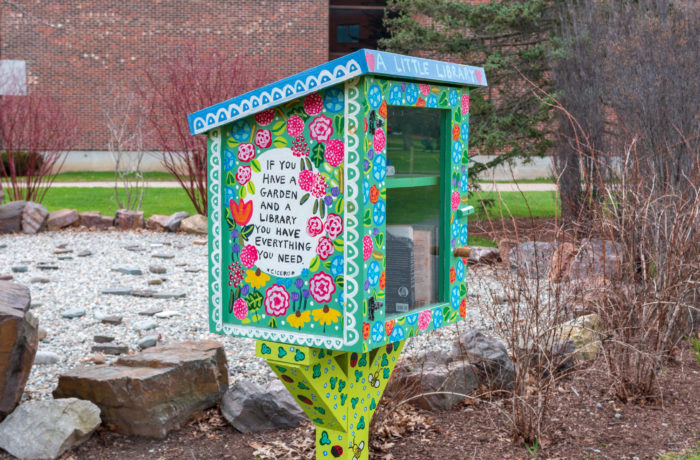
By Elizabeth Hogan
Staff Writer
As the lights go down at Saint Michael’s College, more and more students are choosing to light up. On campus some students find themselves turning to marijuana on a daily basis in order to cope with the stresses of everyday life. They chalk up their frequent use of the substance to the drug’s perceived relaxing effects and as an aid in sleep. But health professionals warn that the drug may in fact increase anxiety and disrupt sleep.
Sophomore Kelly Finn* finds herself turning to marijuana as a way to relax, smoking marijuana six to eight times a day.
“I smoke because I am an anxious mess, so it helps me to be able to calm down, be able to eat without feeling nauseous, and sleep,” Finn said. Other students say that they smoke marijuana for similar reasons.
But using marijuana once a week or more has been associated with doubling a young adult’s risk for depression or anxiety according to the Vermont Department of Health. Marijuana use among high school and college students negatively impacts academic outcomes, it also decreases the likelihood of graduating.
“What we know is that marijuana doesn’t necessarily help with anxiety. As a matter of fact people who are suffering from anxiety that use daily and are actually dependent, are withdrawing from not having enough cannabis, so they actually have more anxiety based on that” said Harry Chen, the executive director for the Center for Health and Wellbeing and the senior public health officer at the University of Vermont.
Of the eight Saint Mike’s students interviewed for this article who partake in the regular use of marijuana half of them said that they noticed receiving lower grades. Three of the eight students said that they felt they saw a worsening in their mental health after they began regularly smoking.
“There is some pretty good data that if [you] consume cannabis regularly or more than 20 times a month then you could probably have some challenges with attendance at school and then ultimately your grades will drop,” Chen said, explaining that sleep problems, worsening depression, and anxiety could all affect attendance. “ I think people are trying to self medicate themselves but ultimately may be making it worse,” Chen said.
Sophomore Jane Smith*, began smoking marijuana on a regular basis during her freshman year at Saint Michael’s College. She says that she smokes almost constantly now after purchasing a dab pen, a vaporizer pen that uses cartridges that contain cannabis concentrates, allowing her to get high in a more discreet way.
“I smoke marijuana because it temporarily takes me off of this Earth which is honestly a cheap vacation… a daily cheap vacation,” Smith said.
Though Smith said she plans to continue to smoke at this rate she has noticed some of the negative side effects that it causes.
“It has messed up my sleep schedule to the point where I stay up all night watching animal planet and then sleep all day,” described Smith.
Zach Johnson* ‘20 is also beginning to notice the toll that his heavy smoking of marijuana is beginning to take on him.
“I would like to think that in a philosophical way smoking weed all the time is making me smarter and improving my mental health, but if I’m honest you’re dumber than dirt when you’re stoned and I’ve never been this anxious or depressed before I began smoking,” Johnson said. “But I can’t stop.”
High use of marijuana can cause use disorders linked to dependance on the drug. According to the National Institute on drug abuse dependance means that a person feels withdrawal symptoms when not using the drug. “People who use marijuana frequently often report irritability, mood and sleep difficulties, decreased appetite, cravings, restlessness, and/or various forms of physical discomfort that peak within the first week after quitting and last up to 2 weeks” according to their website.
Marijuana dependence begins when the brain gets used to large amounts of the drug weakening the neurotransmitters used to process it. Many individuals do not even know that they have marijuana dependence because they do not take long enough breaks from smoking.
“If you find that you are smoking a lot of marijuana and you are doing it often times by yourself, rather than as a social event then that is a concern,” Chen warned. “If you are doing it daily and actually having it control you in terms of having to go smoke some weed instead of wanting to smoke weed just to hangout, if you feel bad when you are not smoking or using marijuana, than that is again a sign of addiction or dependency,” said Dr. Chen.
“I wish I wouldn’t but I just know that I am going to smoke this much until the day that I die,” Smith said as she took one more hit off the dab pen that was tightly clutched in her palm.
*names have been changed


